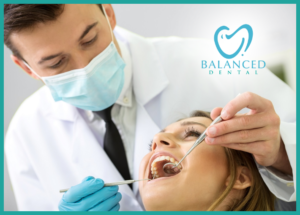Your smile is timeless, and so is the importance of maintaining healthy teeth at every stage of life. Let’s uncover the secrets of how preventative dentistry plays a pivotal role in keeping teeth clean and vibrant, regardless of age. Embrace a radiant smile in 2024 and beyond with the timeless benefits of preventive dentistry.
How Preventative Dentistry Keeps Teeth Clean at Any Age
Are you wondering how to keep your teeth healthy and clean? Well, prevention is key! Preventive dentistry is the practice of taking care of your teeth to keep them sparkling and happy. This practice involves education, treatment, and maintaining your teeth and gums. From daily brushing to regularly seeing your dentist, preventative dental care helps you to avoid gum disease, cavities, enamel wear, and more. Because of the many benefits, these practices should be taught and practiced at an early age.
What does preventive dental care entail? Plenty. And we’ll go into it together. Let’s discuss what you can do at home to take care of your teeth and what dentists cover at the office. We’ll also look at prevention in terms of children and their teeth.
Preventative Dentistry Oral Care Practices
Preventative dentistry focuses on keeping your teeth healthy. Here are the recommended practices:
- Brush your teeth two times a day. Brush with a soft-bristled toothbrush for two full minutes. It’s also recommended to replace your toothbrush every few months, or sooner if your bristles are frayed. American Dental Association (ADA) approved fluoride toothpaste is also recommended.
- Floss once a day. Cleaning between your teeth is essential in managing tooth-decaying bacteria. Flossing helps to remove food particles and plaque between the teeth and under your gumline.
- Visit your dentist regularly. Seeing your dentist allows them to stay on top of any red flags regarding your oral health.
- Eat a balanced diet. Vitamins and minerals are essential for your oral health. It’s also important to limit sugary beverages and snacks. Also, drink plenty of water every day!
Common Practices in the Office
What goes on in the office in terms of preventative dentistry? A lot! Regardless of age, a variety of procedures occur in the dental chair. And guess what? Regular dental exams are preventative as they detect the potential for decay and other oral health concerns. Oral exams, X-Rays, and cancer screenings are all focused on prevention.
Dentists also recommend having your teeth routinely cleaned. Getting your teeth cleaned prevents periodontal disease and keeps your gum tissue healthy. When you get your teeth cleaned by a dentist or hygienist, they’ll use special instruments to scale off any tartar (hardened plaque). Not only will your mouth feel clean, but it will help prevent plaque from progressing into anything that could damage your oral health.
Your dentist will let you know how often they’d like you to visit them. It’s different for everyone, depending on the state of your teeth and oral health in general. Some people need to go once or twice a year, while others may need to go more often.
Treatment for Children
Preventative dentistry is essential (and highly recommended) for your kids. Early exams and cleanings before bacteria even have the chance to build up can ensure a lifetime of dental health.
Fluoride treatments are a useful measure in preventing tooth decay in children. According to the American Academy of Pediatric Dentistry (AAPD), topical fluoride treatments support children in strengthening their tooth enamel during the years when they’re most prone to cavities.
Sealants are also preventive. They help to protect your kids’ back teeth (molars). Sealants are painted onto the top surface of the teeth to prevent decay. When you seal these teeth as soon as they come in, they can stay cavity-free for life. Believe it or not: Sealants reduce the risk of decay by nearly 80% in molars.
Lastly, as children grow and their teeth come in, they may need to see an orthodontist. Usually, your dentist will help determine if this is needed, and they’ll make a referral. An orthodontist will use braces or a retainer to prevent and correct misalignment.
Now you know the secret to clean, healthy teeth: preventative dentistry! It’s the best way to keep gum disease, cavities, and other common conditions at bay. Oral care practices are just as important as dental visits. So keep up with brushing your teeth twice a day, flossing daily, and eating a healthy diet. And remember to visit your dentist regularly. And that includes your kids too. So if you haven’t already, get started practicing preventative dentistry right away. Good news: just by reading this, you’re already doing great things for yourself and your smile.



















